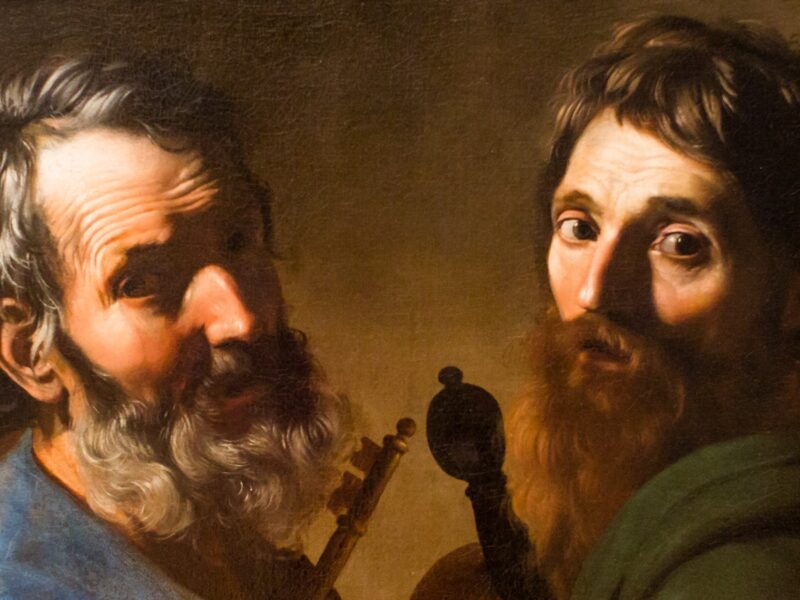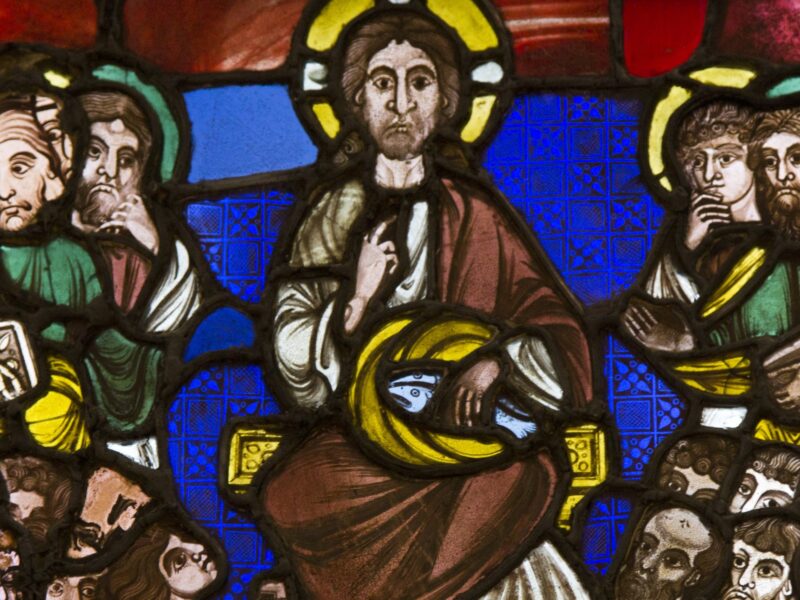
An Exalted Vocation
The Ascension of the Lord. Fr Thomas Skeats tells us of the extraordinary dignity of our Christian mission.
In his farewell discourse at the time of the Last Supper Jesus tells his disciples that he is to go to the Father’s house to prepare a place for them. This place within God is opened up for humanity by the ascension of the incarnate Christ into heaven. Henceforth, human nature is elevated to an unprecedented dignity, the dignity of participating in the Father’s majesty. On account of Christ’s ascension into heaven we now know that the true place of our existing – our true destiny as human beings – is God himself.
This exalted vocation which God intends for us differs so strikingly from the perception that humanity so often has of itself. How frequently in the history of human relationships have men and women found themselves trampled upon, degraded and even discarded as of no consequence? God holds out a nobler future for humanity. It is a future which humanity itself cannot bring about. It can only come as a free gift of God. At the same time, the dignity that the ascension of Christ confers on human nature calls for a response on our part. It furnishes us with a vision with which to shape our world and gives us the foundation for our responsibilities to each other.
In his final appearance to the eleven disciples before his ascension into heaven, Jesus, from the height of a mountain in Galilee, gives a panoramic view of God’s plan for the world. According to Saint Matthew’s account, Jesus emphasises three aspects of this plan. He confirms that all authority in heaven and on earth and has been given to him. On the basis of this authority, he commissions the disciples to make disciples of all nations. Lastly, he assures them that he will be present to them until the end of time. Seated at the right hand of the Father, Jesus continues his mission of drawing humanity away from the spiral of death and corruption to a place of life and happiness within the heart of God.
Yet now Christ gives his disciples the responsibility of being the means by which he is to extend his project of leading humanity to the Father. The commission of the disciples is to go out to the nations, baptizing all peoples in order that they might die to their old ways and come to share in the new life of Christ. And they are to teach the nations to observe the commands of Christ, so that men and women might live in a way that reflects their God-given dignity. This mission to the nations derives its authority from the risen Christ on account of the universal sovereignty that he now has over both heaven and the whole earth.
In the task of bringing God’s truth about humanity to the whole world, Jesus promises his disciples of his continuing presence among them. ‘Know that I am with you always, to the end of time,’ he says. Jesus is Emmanuel – God with us – and this remains true as much after his ascension as before. Certainly his physical presence among his disciples will cease. This was limited to the period of his earthly life. But the spiritual presence of the risen Christ knows no such limitation. The ascended Christ is no longer restricted to one particular place in the world but is now accessible and close to all in the way that only God can be close to all.
Now, before the throne of God, the risen Lord continues to guide and to intercede for those who will go out into the world to bring together and to heal the scattered and bruised pieces of humanity until the time when God’s kingdom will be definitively established and creation will be brought together in unity in the Father’s house where God will be all in all.


